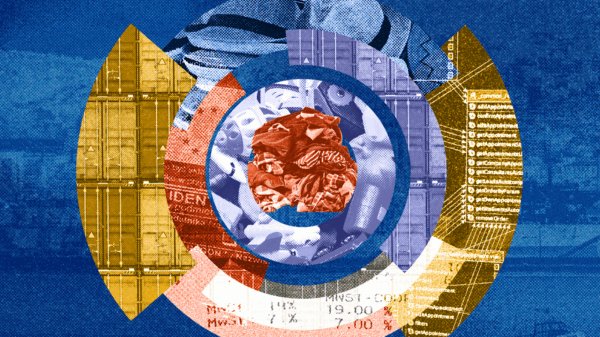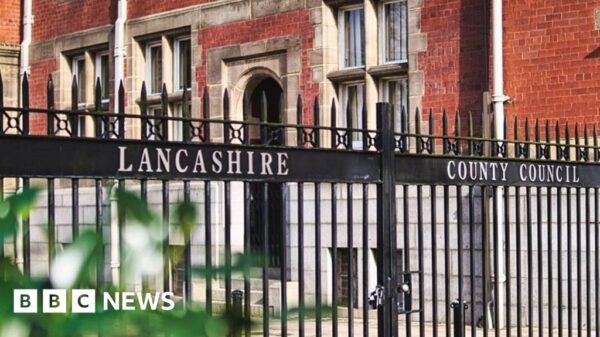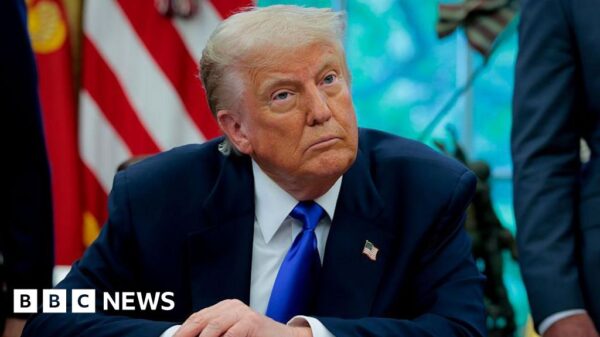Business reporter, BBC News
 Getty Images
Getty ImagesThe US and the UK are expected to announce a deal to reduce tariffs later.
It’s thought US President Trump’s blanket 10% tariffs on imports will stay, but that the UK will see cuts to the 25% tariffs on some of its biggest exports.
Here’s a look at what could be in the deal.
This isn’t a trade deal
US President Donald Trump declared on social media the announcement to come later would be a “major trade deal” – it won’t be.
He does not have the authority to sign the type of free-trade agreement India and the UK finalised earlier this week – this lies with Congress.
Congress would need to approve a trade agreement, which would take longer than the 90-day pause in place on Trump’s tariffs.
What it will be is some exemptions or lowering of those tariffs on specific goods.
It might be quite basic
What is announced today is likely to be only the bare bones of a narrow agreement.
There will be months of negotiations and legal paperwork to follow.
It could also be relatively short-term, covering just a few items.
Currently, most goods imported from the UK to the US face a blanket 10% tariff and that’s expected to remain.
But this deal is likely to reduce tariffs on specific items set to be subject to higher tariffs.
Cars will be important
Trump has already placed import taxes of 25% on cars and car parts coming into the US.
Cars are our biggest export to the US – worth about £9bn last year.
What we could get later is a lowering of this 25% tariff, or a quota system.
A quota system would allow the UK to sell a certain number of cars into the US under low or zero tariffs, with extra charges on vehicles above that quota.
Car industry leaders have told the BBC they would much prefer lower tariffs across the board – as a quota could effectively put a ceiling on the number they can export competitively.
The UK currently imposes a 10% on US car imports, but is expected to lower this.
The US has demanded the import tax be cut to 2.5%, and Chancellor Rachel Reeves has indicated she is open to such a cut.
Steel and aluminium pact
A 25% tariff on steel and aluminium imports into the US came into effect in March. Prime Minister Keir Starmer said the UK would “keep all options on the table”, but did not announce immediate retaliation.
The UK exports a relatively small amount of steel and aluminium to the US, around £700m in total.
However the tariffs also cover products made with steel and aluminium, including things such as gym equipment, furniture and machinery.
These are worth much more, about £2.2bn, or about 5% of UK exports to the US last year.
Steel industry leaders have warned if the 25% tariff isn’t lowered or removed it will be devastating for the industry. It’s not known whether the agreement between the US and the UK will lead to a cut in the rate or the introduction of quotas.
Tariffs could lead to US companies buying less from overseas. A knock-on effect could be more cheap steel flooding other markets, including the UK, as trade is redirected, putting more pressure on an already struggling industry.
Pharmaceuticals the big unknown
What will be agreed on pharmaceuticals is unknown.
Most countries, including the US, imposed few or no tariffs on finished drugs, as part of an agreement aimed at keeping medicines affordable.
Pharmaceuticals are a major export for the UK when it comes to US trade – last year sales of medicinal and pharmaceutical products were worth £6.6bn ($8.76bn) making it the UK’s second-biggest export to the US.
It’s also America’s fourth biggest export to the UK, valued at £4bn ($5.3bn) last year.
The president has not announced any trade restrictions on medicines yet.
There is a danger that the UK could agree a deal, but is then subsequently hit by a global tariff.
Digital services tax olive branch
There is speculation the UK could lower its 2% digital services tax on US firms in return for lower tariffs on things like car and pharmaceutical exports.
The tax is on businesses that run social media, search engines or online marketplaces and applies to revenues derived from UK users.
Firms only have to pay it if they raise more than £500m in global revenues and £25m from UK users annually.
But this is a threshold easily met by US tech giants like Meta, Google, Apple.
The UK reportedly netted nearly £360m from American tech firms via the tax in its first year.
In weighing up whether to cut this tax, the UK will have had to balance its drive to raise revenue and further growth with the political risk of being seen to concede to big tech, or President Trump.
Food standards will not be included
Tariffs on US farm products could also be cut. However, Chancellor Rachel Reeves has been clear that food standards – for example, allowing imports of chlorinated chicken or hormone-treated beef – will not feature in this deal for domestic political reasons.
This is an area where the UK has chosen alignment with EU – and the forthcoming “Brexit reset” with the EU – over the US.
Many American farmers use growth hormones as a standard part of their beef production, something that was banned in the UK and the European Union in the 1980s.
The US has previously pushed for a relaxation of rules for its agricultural products, including beef from cattle that have been given growth hormones.
It would be seen as a diplomatic win for the UK if the US has accepted even a narrow deal while dropping demands in this area.



























